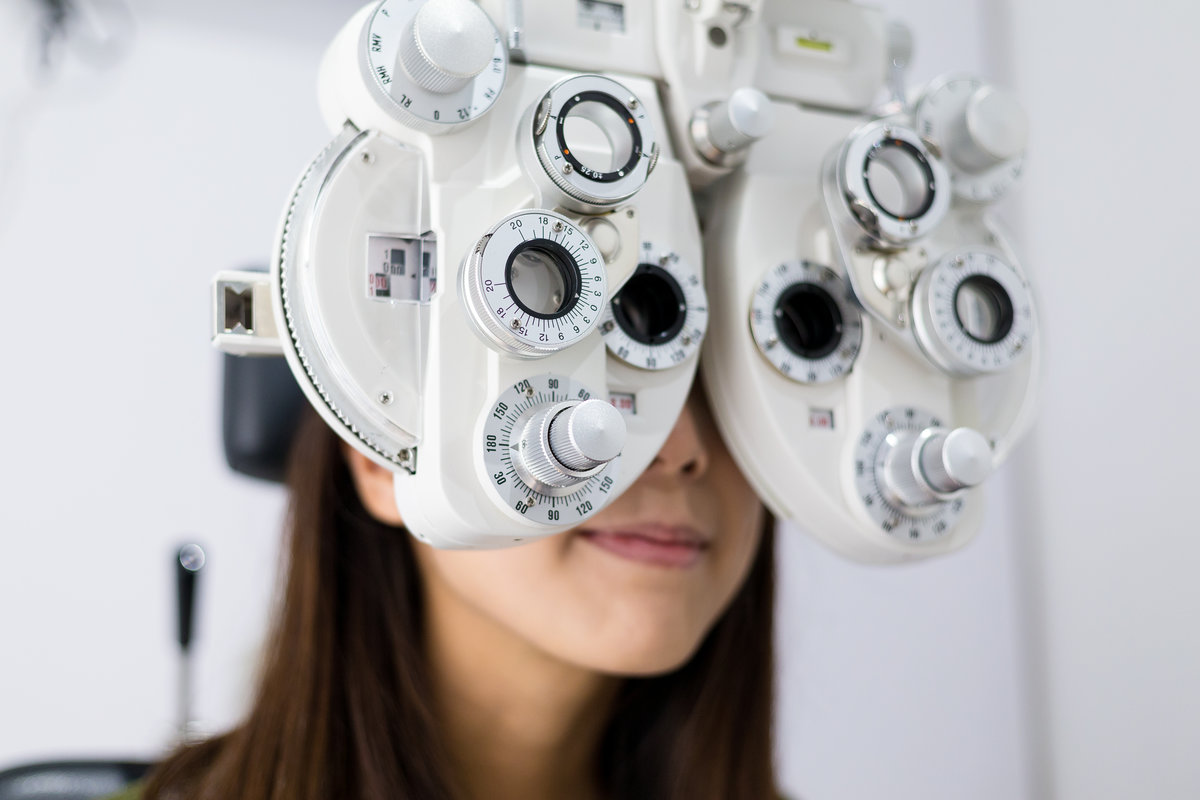


Age-Related Macular Degeneration
Time passes differently when you watch details slowly fade from view. The crisp edges of faces become soft, reading becomes a struggle, and the vibrant colors you once saw with clarity start to dim. Age-related macular degeneration doesn’t announce itself with fanfare, but instead whispers its arrival through subtle changes in your central vision, affecting your ability to see the world as you once knew it.
At Vision Source Mandan, our experienced team understands how AMD impacts daily life for residents throughout Mandan and Bismarck. Dr. Brittany Schauer, Dr. Wayne Aberle, and Dr. Danielle Dyke provide comprehensive AMD management, helping you understand your eye condition and develop strategies to preserve your remaining vision. While we may not perform intravitreal injections, we play a crucial role in early detection, ongoing monitoring, and connecting you with retina specialists when necessary.
Understanding Age-Related Macular Degeneration
Age-related macular degeneration (AMD) affects the macula, a small yet vital part of the retina responsible for sharp central vision. According to Prevent Blindness, a 2022 study found that nearly 20 million Americans are currently living with some form of age-related macular degeneration. This condition gradually damages the cells in your macula, making it challenging to see fine details directly in front of you. AMD typically develops in people over 50 and becomes more common with advancing age.
The condition presents in two primary forms: dry AMD and wet AMD. Dry AMD develops slowly and accounts for about 85-90% of all cases. It occurs when the light-sensitive cells in the macula gradually break down, causing vision to slowly decline over time. It’s possible for dry AMD to convert to wet AMD later on. Wet AMD, though less common, progresses more rapidly and occurs when abnormal blood vessels grow beneath the retina and leak fluid or blood into the macula.
Early-stage AMD often produces no symptoms, making regular comprehensive eye exams essential for detection. As the condition progresses, you may notice straight lines appearing wavy or difficulty recognizing faces. When retinal cells become damaged or die off, the vision from those areas simply ceases to exist. You don’t see black spots or empty areas; the brain fills in the missing pieces, similar to how you don’t see anything behind your head. The information is simply not there. These changes can greatly affect your ability to drive, read, or perform detailed tasks.






Risk Factors and Prevention Strategies
Several factors increase your risk of developing AMD, with age being the most significant. People over 60 face the highest risk, and women tend to develop AMD more frequently than men. Family history plays a substantial role, as genetics accounts for approximately 50% of AMD cases.
Lifestyle factors also contribute to the development and progression of AMD. Smoking doubles your risk and accelerates the progression of the condition. Poor nutrition, particularly diets low in antioxidants and omega-3 fatty acids, may increase disease susceptibility. High blood pressure, prolonged sun exposure, and obesity also elevate risk levels.
The encouraging news is that many of these risk factors remain within your control. Practicing a diet rich in leafy greens, fish, and colorful fruits provides essential nutrients that support macular health. Regular exercise helps control weight and blood pressure while improving overall circulation. Protecting your eyes with quality sunglasses and avoiding smoking can substantially reduce your risk of developing AMD or slow its progression.
Comprehensive AMD Management and Support
At Vision Source Mandan, we take a proactive At Vision Source Mandan, we take a proactive approach to AMD care, focusing on early detection through advanced diagnostic technology and regular monitoring. Our comprehensive eye exams include specialized testing to identify even the earliest signs of macular changes, often before you notice any vision problems.
We utilize state-of-the-art imaging equipment to capture detailed pictures of your retina and track any changes over time. This technology enables us to closely monitor your condition and make timely referrals to retinal specialists when necessary. While we don’t perform surgical injection interventions, we maintain strong relationships with trusted retina specialists throughout North Dakota to ensure you receive the most appropriate care.
Our AMD management includes:
- Regular monitoring appointments to track disease progression
- Nutritional counseling and supplement recommendations
- Low vision aids and adaptive techniques to maximize remaining vision
- Coordination with retinal specialists for advanced treatments
- Support and education for patients and families
For patients with wet AMD requiring injections or other specialized treatments, we work closely with ophthalmologists to ensure seamless care coordination. We continue monitoring your overall eye health while specialists address the specific treatment needs of your condition.






Contact Vision Source Mandan for AMD Care
Managing age-related macular degeneration requires ongoing professional care and support, something our team at Vision Source Mandan provides with compassion and thorough attention. With over 70 years of serving the Mandan and Bismarck communities, we understand the importance of preserving your vision and maintaining your quality of life. Dr. Brittany Schauer, Dr. Wayne Aberle, and Dr. Danielle Dyke bring advanced training in macular degeneration management, while our entire team stays current with the latest developments in AMD care and low vision rehabilitation.
Whether you’re experiencing early symptoms, have been recently diagnosed, or need ongoing monitoring for established AMD, we’re here to support you every step of the way. Our practice combines cutting-edge diagnostic technology with personalized care, ensuring you receive the most comprehensive AMD management available in our region. Contact Vision Source Mandan today at 701-663-0313 or complete our online contact form to schedule your comprehensive eye examination.
Ready for Crystal-Clear Vision with Contact Lenses?
Don’t compromise on your vision or comfort. The eye care team at Vision Source Mandan is ready to help you find the perfect contact lens solution for your unique needs.